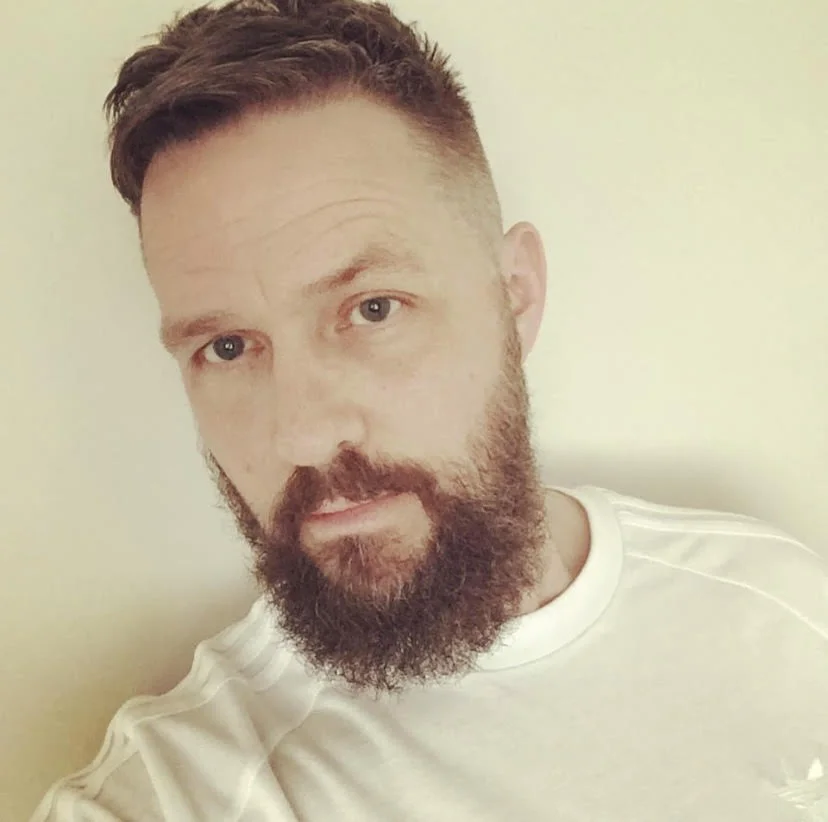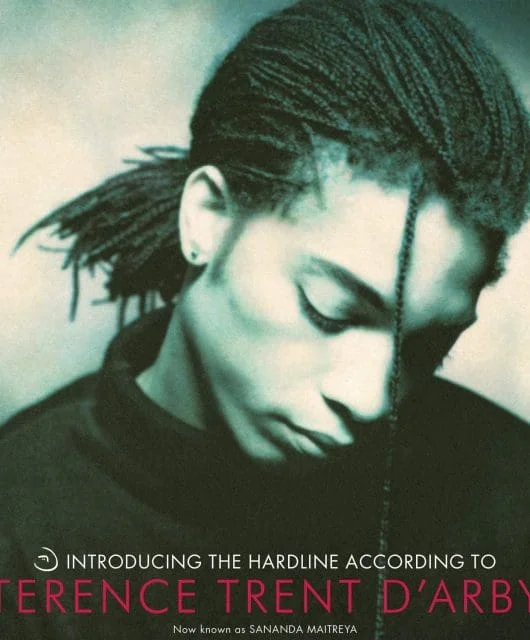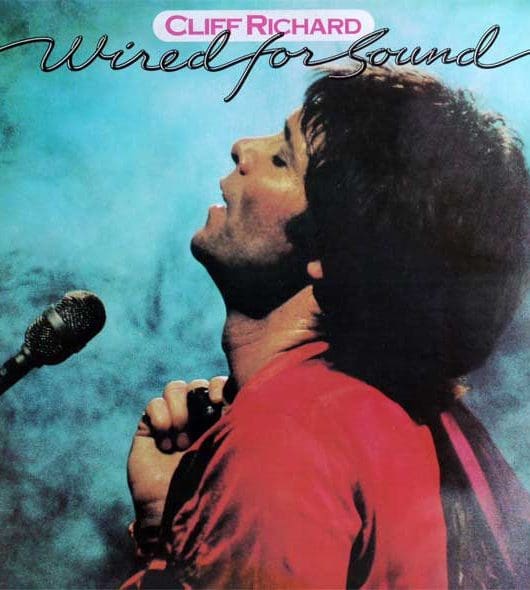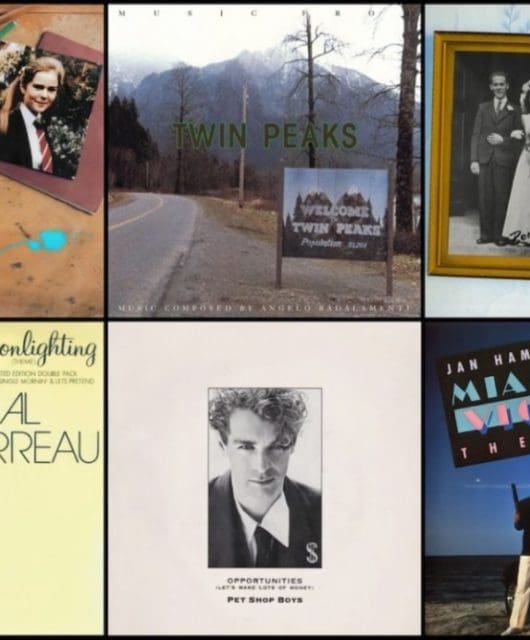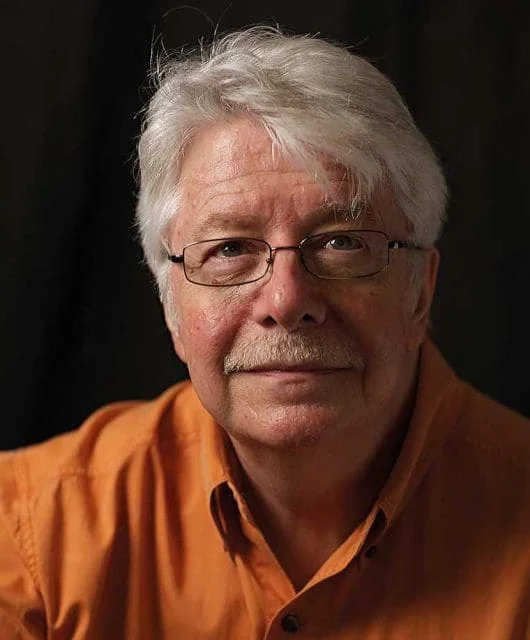Making Primal Scream: Screamadelica
By Mark Lindores | March 10, 2022
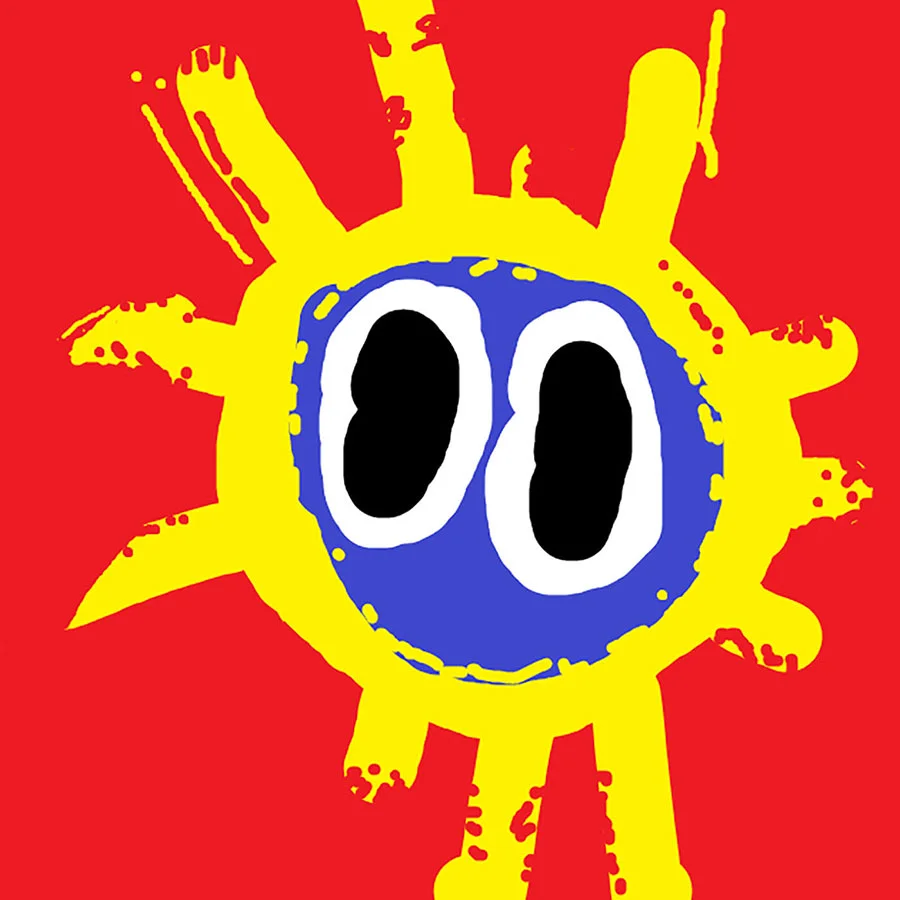
With Screamadelica, Primal Scream led their generation towards the new era of dance by combining celebratory beats with rock swagger. Tactical and perfectly timed, it succeeded brilliantly. but there was also a heart behind the hedonism…
The late 80s were a bleak and frustrating time for Primal Scream. Their self-titled second LP had been a disappointment; feeling that they lacked direction, Creation boss Alan McGee booked them on a tour of “any shithole that would have them”. Jokingly dubbed the Tear Up The Atlas Tour, the jaunt saw them play tiny venues in far-flung corners of the UK – but, crucially, during the tour the band met DJ Andrew Weatherall.
“I didn’t know much about them, I only knew the odd track,” Andrew recalls. “I’d been asked by Helen Mead, the live editor of the NME, to review one of their gigs, and I thought they were great so I gave them a rave review. We met again a couple of weeks later in Heaven and I got to know them and they asked if I wanted to have a go remixing one of their tracks.”
Although Weatherall was a successful and influential club DJ, he admits that he was daunted at the prospect.
“I’d only been in the studio a couple of times and was a bit hesitant at first,” he says. “I knew what I wanted to do with I’m Losing More Than I’ll Ever Have, but I didn’t want to offend them by stripping away the vocal and stuff. So I did a version and thought it was okay, but when I played it for them they looked disappointed and said, ‘We wanted it more screwed up than that. Do what you like. Don’t worry about us.’ So I went back and did what became Loaded.”
“I loved what he had done with it,” Bobby told Absolute Radio in 2011. “I was blown away. I’d grown up with the disco extended 12” mixes and I loved dub versions where The Scientist or Errol T or King Tubby would take the vocal reggae track and strip it back, or make it instrumental and add odd noises and samples, and to me that’s what Loaded was. It was a dub version of our song.
“We wanted Andy to take the track and make it into something he could play during his sets. It was an experiment and I loved the result.”
The following weekend Andrew dropped the track during his set at London’s Subterranea, where it met with a shocked and then rapturous reception. Until now, the band had been known for punky garage rock influenced by The Stooges, New York Dolls and The MC5, but having been introduced by Alan McGee to the pills and thrills associated with a Happy Mondays gig, ecstasy and the acid house scene, Bobby’s musical horizons were expanded.
“At first I wasn’t really into the music but I did like the drug,” Bobby said. “I was living in Brighton at the time, and Alan McGee moved into the flat above me and he had a lot of parties so he wore me down with the music – import 12” singles by the likes of Frankie Knuckles, and Voodoo Ray by A Guy Called Gerald. My girlfriend was really into it, so I started going out on the acid house scene and it became really exciting – way more exciting than rock gigs.”
Having scored their first Top 20 hit with Loaded, a follow-up was required. Set on capturing the rush and euphoria of acid house on record, the new altered-state Primal Scream holed up in a studio in Hackney to indulge themselves in a period of experimentation void of rules and boundaries. Writing on keyboards instead of guitars and using an Akai S1000 sampler freed them from a traditional verse-chorus-verse song structure. The result was Come Together – the sound of summer 1990.
“We never did ecstasy in the studio,” Bobby told the BBC’s Classic Albums series in 2011, “but the record came out of the experience of being involved in the acid scene and doing ecstasy. We’d find out where Andy was DJing, hire a car, and go off partying, listen to what was going on, end up in some stranger’s house having a good time, then get back in the studio to work on the Monday… or maybe on the Wednesday!”
Read more: Making Massive Attack’s Blue Lines
Read more: Making Moby’s Play
These long, wasted weekends was the reason for the slow culmination of the album. With weekenders often lasting four or five days, the band members’ partying was way more prevalent than their output, and before long McGee was forced to intervene to get the band to work on an actual album as opposed to an intermittent stream of singles.
Once the band established their focus, the album came together quickly. The unifying spirit of raves infiltrated the recording, resulting in jamming sessions with everyone working to produce the best record possible, with egos checked at the door.
If someone wasn’t available to play their part or someone thought they could do something better, it was encouraged (hence there are no band credits on the album). The only fixed roles were those of songwriters, with Gillespie, Innes and Young penning the entire album with the exception of Slip Inside This House.
Although critics heralded the production of Andrew Weatherall, Hugo Nicolson and Terry Farley, Weatherall himself insists that the songs are the album’s core. “It gets on my nerves when people think it was all down to me. I played a very small part in it,” he says. “They’re great songwriters, and Bobby is a really good singer, so it wasn’t like I wasn’t presented with some brilliant material to work with. They wrote absolutely beautiful songs and if I hadn’t done a good job with them I wouldn’t have had any right to be in a studio.”
Read more: 90s dance – the essential playlist
Read more: The Bristol sound
Screamadelica was released on 23 September 1991 to a rapturous reception. As it had been preceded by four singles, the album was expected to be a big hit for the band, but sales exceeded expectations and the album’s initial print run of 60,000 copies sold out within days, forcing an emergency pressing to cope with demand, costing the album a chart position of its No. 8 peak.
With a huge album to their name and a string of era-defining singles now under their belt, Primal Scream embraced the high life, appearing on Top Of The Pops and The Word, winning the inaugural Mercury Music Prize and infamously appearing on the cover of Select magazine alongside Kylie Minogue.
The following year they embarked on a tour which took debauchery to an entirely new level, with their own personal drug dealers as part of the crew. Wanting to capture the essence and energy of a rave in a gig setting, they toured with DJ acts in support and played gigs that were all-nighters rather than traditional rock concerts.
“We took drugs to get us on stage, more drugs during the gig and an aftershow wasn’t an aftershow without drugs,” Bobby says. “The massive party that started with Alex of the Orb as the warm-up DJ would continue after we’d come off and dance with the crowd to Weatherall, and that would go on for ages.”
It wasn’t until listening to the masters of Screamadelica in 2010 for a 20th anniversary reissue that Gillespie noticed another facet to the album. “I really felt the emotion in it,” he says. “When we made it, it was a really pure thing. We thought we’d made an independent rock record that was always going to be cool, and I was happy with that. Then people went mad for it and it became this other thing.
“When we listened to the master tapes, we were like, ‘Whoa’. They were great performances, and it’s a really sincere, heartfelt, emotional record. I hadn’t noticed the sadness in it before – we just made it and thought, ‘Yeah, it’s a hedonistic record.’”
With over 800,000 copies sold, a spot virtually booked in ‘Greatest Albums Of All Time’ lists and its iconic Paul Cannell cover art immortalised on a stamp, Screamadelica’s classic status is affirmed. “It made a big impact and people still come up and say how much it means to them or how it was the soundtrack to events in their lives. I still find that touching,” Gillespie says. “That’s what music is supposed to do. I’m incredibly proud of it.”
Read more: Bomb The Bass interview
Read more: Top 20 80s house hits
Primal Scream: Screamadelica – the songs
Movin’ On Up
Beginning life as a bare piano and vocal ballad inspired by blues and gospel, Movin’ On Up grew into a Rolling Stones-inspired anthem. The catalyst for this re-style – a Bo Diddley-style intro riff from Andrew Innes – led the band to add more guitars and a choir on the chorus as they felt Bobby’s voice was too soft to convey the uplifting message. The song gave the band the chance to work with producer Jimmy Miller, and it was chosen as the lead track on the Dixie-Narco EP in 1992, which scored a No. 11 in the UK.
Slip Inside This House
The only song on Screamadelica not written by the band, Slip Inside This House is a cover of a song by 60s psyche purveyors The 13th Floor Elevators. On the day of recording, a worse-for-wear Bobby was unable to perform the vocals, so guitarist Robert Young stepped up instead.
Don’t Fight It, Feel It
Don’t Fight It, Feel It, one of the most straightforward club songs on the album and the one that supplied the collection’s biggest crossover onto the dance scene, was inspired by The Ronettes and Phil Spector’s ‘Wall Of Sound’. The band enlisted Denise Johnson to contribute the soulful vocal. Bobby has described the song as “Andrew Weatherall’s masterpiece”, claiming it to be “the sound of rushing on ecstasy”.
Higher Than The Sun
Portrayed by Creation boss Alan McGee as “a genius hymn to drugs” and by Bobby Gillespie as “the most important record since Anarchy In The UK”, this epic, sprawling piece was inspired by The Orb’s Little Fluffy Clouds. Alex Paterson also thought it was “the best thing I’ve ever done”. Although the song originally clocked in at almost seven minutes long, Weatherall decided that an edit should be included on the album to work better with the sequencing as it was followed by another mellow track, Inner Flight.
Inner Flight
Eschewing the idea that just because a band had a drummer, a guitarist and a bassist all of those elements had to be on every song, Inner Flight was Primal Scream stretching out and utilising advances in technology, in this case the S1000 sampler. The band wanted a trippy, more synthetic feel and decided to use the sampler to obtain the flute sound, a process which sound engineer Hugo Nicolson took days to perfect. The song ends with a sample of Brian Eno’s The Great Pretender.
Come Together
The sound of summer 1990, Come Together encapsulates the peace, love and drugs of the rave generation. Written in the aftermath of band visits to clubs such as Shoom and Spectrum, the song – with its laidback groove, samples of Jesse Jackson’s inspirational speeches, myriad sound effects and the gospel refrain of “come together as one” – showed Primal Scream embracing the realisation that a song could be built solely around a riff or a vocal hook instead of following a more conventional structure.
Loaded
A remix of I’m Losing More Than I’ll Ever Have from the band’s self-titled second album, Loaded was the first collaboration with Andrew Weatherall and the impetus for the acid rock direction of Screamadelica. The infamous sample of Peter Fonda saying “We want to be free to get loaded” was taken from the dialogue of the 1966 film The Wild Angels. The song reached No.16 in the charts, giving the band its first Top 20 hit.
Damaged
Although Screamadelica is lauded for its uplifting anthems, there’s a lot of heart hidden amongst the hedonism, and Damaged is the album’s most tender moment. It was recorded live in one take, with the guitar solo added by Henry Olsen. The lyrics dealt with the heartbreak of Bobby Gillespie and Andrew Innes, both of whom had recently endured break-ups from their long-term partners. The song was released as a Japanese-only single in August 1992.
I’m Comin’ Down
The joyful highs of Loaded, Movin’ On Up and Come Together are countered by the despairing I’m Comin’ Down – a song which wasn’t played live until the 20th anniversary gigs in 2011 as when the album was released in 1991 the band wanted their shows to have a positive, celebratory feel. Gillespie says that the sadness in the record wasn’t obvious to him until he revisited it clean and sober for the anniversary shows, when drummer Darrin Mooney – who joined after Screamadelica – pointed it out.
Higher Than The Sun (A Dub Symphony In Two Parts)
While the edited Higher Than The Sun was included as it worked better within the realms of the album’s tracklisting, this remix, featuring Jah Wobble, was also included.
Shine Like Stars
As soon as the song was recorded, the band knew that it would close the album. A gentle, almost lullaby-like track, Shine Like Stars heralds the party being over after all the debauchery that comes before it. The album is sequenced to reflect a wild, lost weekend, taking the listener on a trip which included hope and expectation, love and euphoria, and melancholy at the inevitable comedown.
Read more: Top 20 ones that got away
